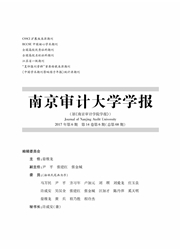

 中文摘要:
中文摘要:
我国城镇企业职工基本养老保险个人账户在本质上体现的是养老权而不是财产权,基本养老保险个人财户权益的根本意义在于保障企业职工的社会养老权。我国从2001年开始实行做实企业职工基本养老保险个人账户试点,这不仅未能化解养老金支付风险,而且加大了养老保险基金保值增值难度,基金贬值程度也随着做实比例的提高而增大。另外,做实个人账户抬高了储蓄率并抑制了投资和消费需求,对经济发展产生了挤出效应。为解决上述问题,应建立更加公平可持续的养老金制度,通过名义账户制从根本上体现企业职工的财产权和社会养老权,解决做实账户制所出现的效用损耗问题,化解养老金贬值风险和支付危机,从而使得社会统筹和个人账户相结合的基本养老保险制度臻于完善。
 英文摘要:
英文摘要:
The basic endowment insurance of the urban enterprise employees in China embodies the pension rights in essence rather than property rights, the fundamental significance of personal accounts of endowment insurance is to protect the social rights of enterprise employees. The replenishment of individual endowment insurance accounts pilot starting in 2001 fails to resolve the endowment payment risk, but increases the difficulty of preservation and appreciation of the endowment insurance fund, with devaluation of endowment insurance fund increasing by the replenishing proportion. Moreover, replenishing individ- ual accounts raises the savings rate and inhibits investment and consumption demand, thus having a crowding-out effect on e- conomic development. Therefore, an equitable and sustainable pension system should be established and a book-entry mode of personal accounts in the name of the employee pension rights should be set up to fundamentally reflect the employees property rights and social rights and hence solve the problem of utility loss arising from replenishing individual accounts. Only in this way can we avoid the risk of depreciation and payment of the endowment and improve the system of basic endowment insurance that integrates social pooling and personal accounts.
 同期刊论文项目
同期刊论文项目
 同项目期刊论文
同项目期刊论文
 期刊信息
期刊信息
